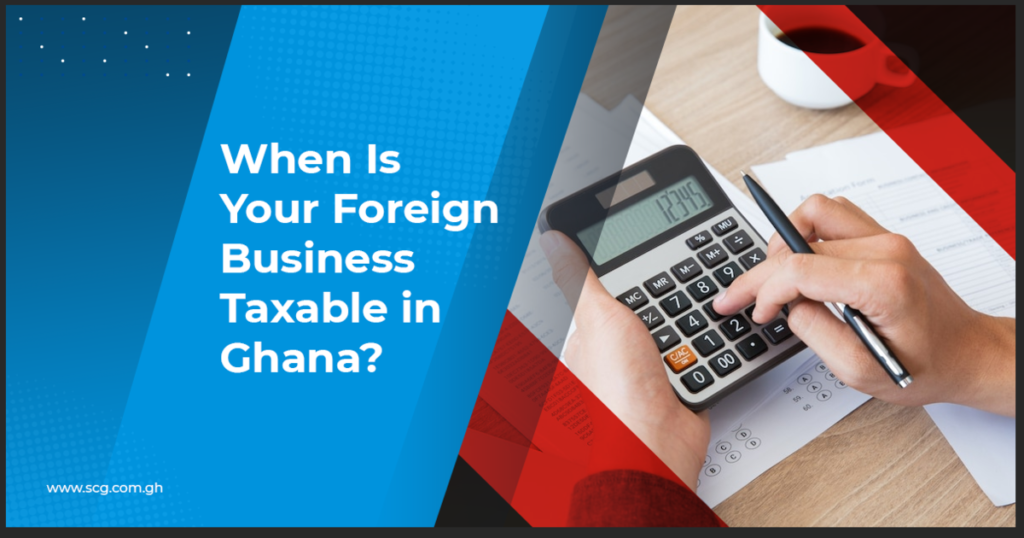Your foreign business is taxable in Ghana when you have a permanent establishment in Ghana.
When an entity does business across borders, it must deal with how the countries in which it operates will tax the income it makes. Countries regulate the right to tax through Double Tax Agreements (DTAs).
To tax a foreign entity, the local tax authorities must establish that the entity has significant business activities in Ghana. They use the concept of permanent establishment to test if a business has taxable activities in a country.
What is a Permanent Establishment (PE)?
Article 5 of the OECD Model Tax Convention defines a Permanent Establishment (PE) as a “fixed place of business through which the business of an enterprise is wholly or partly carried on” [1]
Most countries align their definition of a permanent establishment with that of Article 5 of the OECD Model Tax Convention. They apply local PE law and Double Tax treaties to confirm that a PE exists.
Indicators that are commonly used to test the existence of a permanent establishment are:
- The entity operates from a fixed place of business in the host country. This may be the home office of the employee.
- The employees in the host country receive sales-related compensation such as commissions or bonuses.
- An employee with a job title or description that denotes he performs activities related to revenue generation or sales, who operates in the host country for a prolonged period.
- The entity sells to customers based on contracts negotiated by an employee or dependent agent in the host country.
Note that if the employee or agent does not have the authority to conclude contracts, but the tax authorities believe he or she is substantially involved in negotiating the contract, they may deem a PE to exist.
Here are some situations that could lead to permanent establishment.
- A foreign company sends a technician to install and maintain software in another country.
- A foreign company hires a liaison manager, who does not handle sales, to work in another country.
In both examples, the GRA may decide that the two activities create a permanent establishment because they generate revenue directly or indirectly.
A client liaison manager serves as an indicator to local tax authorities that your company has triggered a PE.
Two activities that do not create a PE are:
- the activity is preparatory—the entity is preparing but has not started business.
- an ancillary activity—this does not form an essential part of the business.
The taxpayer must prove that local activities do not create a permanent establishment.
Businesses should note that PE laws are changing in virtually all countries, and it is increasingly difficult to apply this and other exemptions. [2]
Permanent Establishment under Ghana tax
The Ghanaian Income Tax Act 2015, Act 896 draws heavily on International best practises in defining a PE.
Section 110 of the Act[3] stipulates activities in Ghana that could trigger a PE includes:
- The non-resident person has a place where he does business.
- A place where a non-resident person has, is using or installing substantial equipment or substantial machinery.
- A person is engaged in a construction, assembly, or installation project for ninety days or more.
- The non-resident entity is conducting supervision in relation to a project.
- A non-resident person provides services in the country.
- An agent performs functions on behalf of the non-resident person in a country.
Conclusion
If you are thinking of doing business in Ghana, you must know the laws on taxation of foreign entities doing business in Ghana and the factors that trigger a PE. Seek the help of a tax professional to help you mitigate PE-related risk.
For more information and videos please follow SCG Chartered Accountants on Facebook, Twitter, Youtube and LinkedIn.
[1] OECD Model Tax Convention on Income and on Capital ,2014
[2] www.radiusworldwide.com/sites/default/files/resources/radius_pe_playbook.pdf

